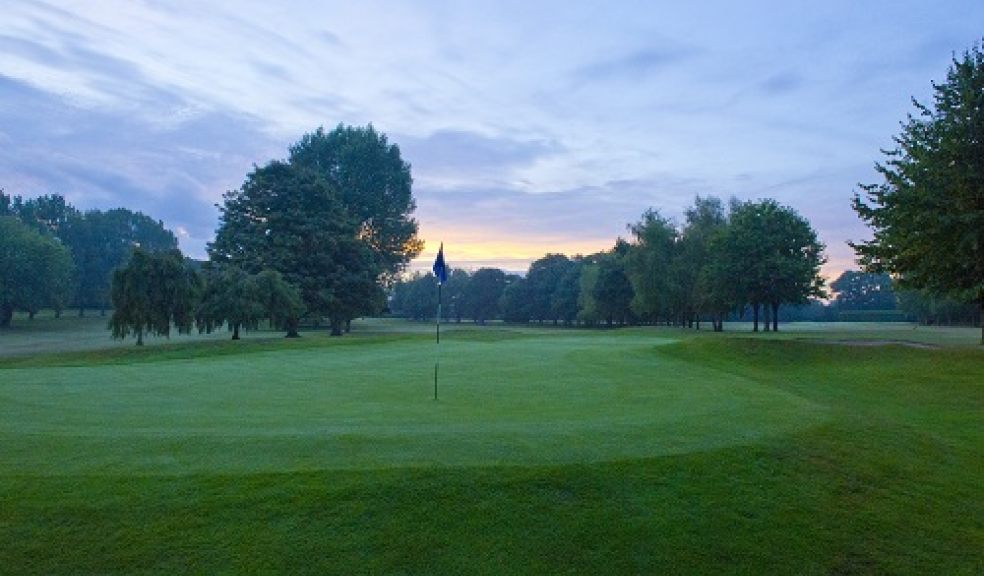
Greenkeepers do their bit for National Nest Box Week
The golf course greenkeepers at Exeter Golf and Country Club are doing their bit for National Nest Box Week to protect the bird population of the golf course. With 12 of their 28 nest boxes currently active, the self-named ‘Green Soldiers’ are working hard to increase activity year-on-year and have an action plan in place for National Nest Box Week.
National Nest Box Week starts tomorrow (14 February) and is organised each year by the British Trust for Ornithology, Britain’s leading bird research charity. The BTO primarily researches populations of our common and garden birds.
Headed up by Golf Course Manager and keen ecologist John Parr, the greens team has always taken an interest in the wildlife and bird population of the golf course and are keen to participate in National Nest Box Week to raise awareness of how everyone can help. The nest boxes on the course have a 46% activity rate, which is encouraging. The club are asking golfers to tweet photos or sightings of birds on the course to celebrate National Nest Box Week under the hash tags #exetergcc and #greensoldiers.
Exeter Golf and Country Club is home to over two hundred mature trees along with over a thousand fledgling trees planted over the past few years. The Club has a tree planting scheme along with a wildlife protection plan which is being developed further every year. The trees include oaks, limes, silver birch, ash, London planes, horse chestnuts, sweet chestnuts, poplars, rowans and whitebeam, many spanning decades in age. There are also over 1km of native hedges, including hawthorn, blackthorn, holly, hazel, beech and yew, all of which have characteristics to attract indigenous wildlife and birds, from stag beetles to stoats, and woodpeckers to kestrels.
The nest boxes on the course have been made by the Green Soldiers team who have constructed them with different size entrance holes to attract different species of birds. The boxes are installed between 8 and 10 feet off the ground so they are safe and cannot be disturbed by golfers. The team select areas where the tree numbers are greatest and areas where the nesting birds are not likely to be disturbed, often in tree plantations next to waterways and/or long grasslands.
The golf course appears to be a great place for keen bird watchers, with regular sightings of buzzard, kestrel, pied wagtail, swallow, house martin, sparrow hawk, blue tit, gold finch, spotted flycatcher, nuthatch, blackcap and all native types of spotted woodpecker.
John Parr, Golf Course Manager said: “Many of the trees and hedgerows at the golf course have been here for over a century and create the perfect habitat for birds and animals, along with our stream and pond. We are completely committed to developing this further as it’s a very important aspect of our responsibility as managers of this beautiful countryside environment, especially we are located as an oasis of the outskirts of the city centre.
One of the ways we want to do this is by encouraging more wildlife and birds to the grounds as well as protecting those already here. Our bird nesting boxes help to ensure this especially over the winter months.”
John Parr continues: “As well as the nesting boxes, which are already working very well, we have installed bat boxes, pond, long grass and bramble management systems, hedge laying and introducing eco-piles from logs and dead wood. The eco piles are vital to encourage more fungus which in turn attracts smaller wildlife species for instance the stag beetle and dormice. These areas are out of play and provide great habitat wild flowers such as cuckoo flower, oxeye daisy, hawks bit and wild burdock.”
We will be working in partnership with ecology and wildlife organisations to further develop their plans and help to ensure the golf course continues to be a haven for plants and wildlife, as well as the region’s golfing community.
For more information on National Nest Box Week give us a call on 01392 874139, or visit http://www.bto.org/nnbw/index.htm.




















